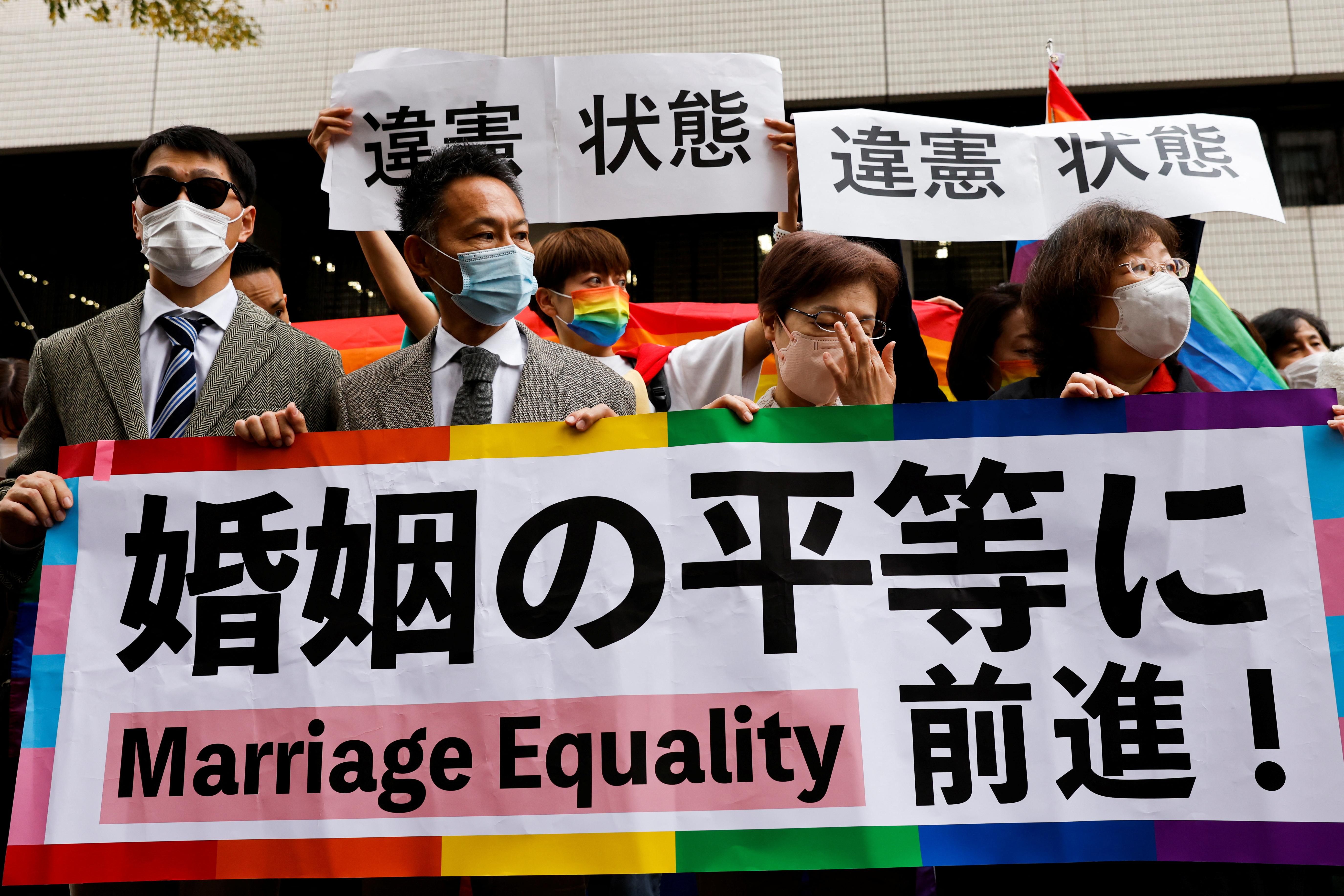US & Japan make same-sex marriage waves
As the US steps forward (a bit) in protecting LGBTQ rights, Japan digs in its heels on the same issue — with a silver lining. On Tuesday night, a filibuster-proof majority of American senators passed a bill to enshrine the right to same-sex marriage in federal law. It repeals the 1996 Defense of Marriage Act, which allowed US states not to recognize same-sex marriages performed in other states, although states will not be required to issue marriage licenses to same-sex couples. Just hours later, a Tokyo court upheld Japan's ban on gay marriages by ruling against four couples who sued for discrimination. But there's a caveat: the same court admitted that the ban is a violation of human rights. What do these two developments mean on opposite sides of the world? In the US, passing the bill — which still needs a House vote, likely next week — was a rare show of bipartisanship in a culture-war issue like same-sex marriage, which many fear is the Supreme Court's next target after ending the federal right to an abortion. In Japan, the ruling might put pressure on Japanese lawmakers to finally give in and legalize same-sex marriages in the only G-7 country where it's still verboten. That would be a big shift for conservative Asia, where same-sex marriages are only legal in progressive Taiwan.
China & Russia poke South Korea by air
Why did Chinese and Russian fighter jets do something crazy like enter South Korea's air identification zone on Wednesday, prompting Seoul to scramble its own fighters in response? Good question. Well, it's certainly China's go-to move to troll Taiwan each time the pesky Taiwanese or big bad Americans do something Beijing doesn't like. But perhaps it has more to do with the fact that South Korea's right-wing President Yoon Suk Yeol is a lot tougher on North Korea than his predecessor, the dovish Moon Jae-in. Moscow is the coziest it's been with Pyongyang since Soviet times because the war in Ukraine is not going well for Vladimir Putin — to the point that he is buying up all the arms and ammo that Kim Jong Un’s factories can churn out. And what about China, North Korea’s longstanding ally? Beijing has always had a testy relationship with the South, but such a military show of force, side-by-side with Russia, is a major escalation. No reaction yet from Kim, who's kept — by his standards — a low profile for a few days while he mulls whether to get Joe Biden's attention by carrying out North Korea’s first nuclear test since 2017.
Jeffries ascends to the crowning heights of Congress
House Democrats on Tuesday officially chose Rep. Hakeem Jeffries of New York to succeed Nancy Pelosi as leader of the party caucus. Jeffries, raised in the Crown Heights section of Brooklyn, is the first Black leader of either of America’s two main parties in Congress. His leadership also reflects a generational shift: Jeffries, 52, is 30 years younger than Pelosi — when she first became a member of the DNC, he was only 6 years old. Alongside Jeffries, new whip Katherine Clark, 59, of Massachusetts, and caucus chair Pete Aguilar, 43, of California round out the new House Dems’ leadership. The Dems will be in a slim minority come January, and the unopposed election of Jeffries, Clark, and Aguilar signals party unity – for now. But Jeffries, a center-left Democrat, has big shoes to fill as he seeks to keep the party united, especially ahead of the 2024 election, when rifts may open about whether 80-year-old Joe Biden should run again.
What We're Eating: Vive la baguette!
There’s long been a divide within French society between those who celebrate the glories of France’s artisanal traditions and those who prefer modern convenience. American intrusions like fast food and Disneyland Paris draw a vehement quelle horreur from the old school while others order Big Macs and take photos with Mickey Mouse. (President Emmanuel Macron has called the baguette “250 grams of magic and perfection,” while French stage director Ariane Mnouchkine once derided Disneyland as “cultural Chernobyl.”) Score one for le patrimoine culturel gastronomique this week because Unesco has announced that the baguette, a culinary symbol of French excellence, has been added to its “intangible cultural heritage” list. Les supermarchés will continue to welcome floods of French shoppers, but the boulangerie-baked baguette, according to the UN, will remain “a structuring element of the meal, synonymous with sharing and conviviality.” We could all use more of that.
